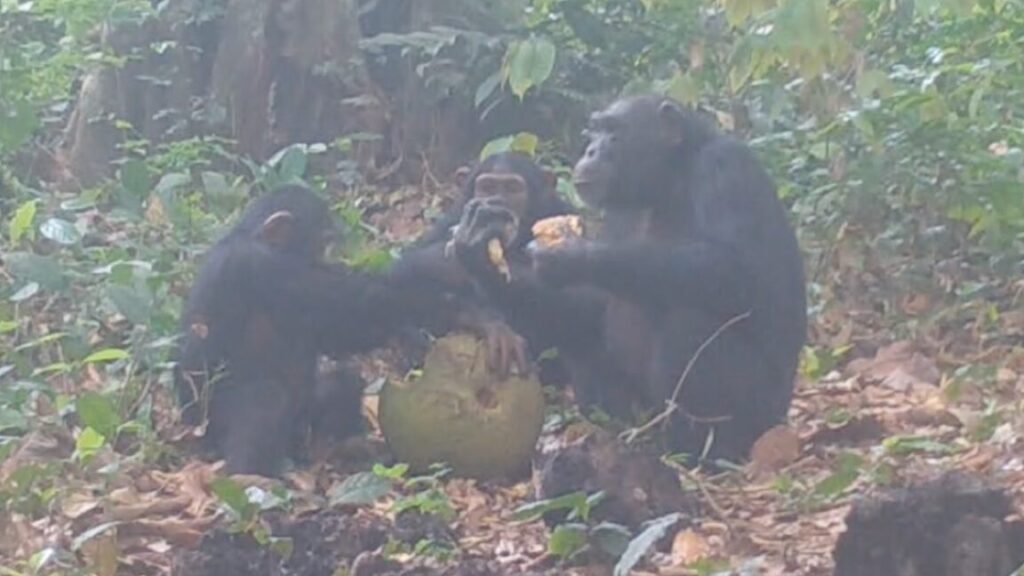Is there anything more human than gathering in groups to share food and partake in a fermented beverage or two (or three, or….)? Researchers have caught wild chimpanzees on camera engaging in what appears to be similar activity: sharing fermented African breadfruit with measurable alcoholic content. According to a new paper published in the journal Current Biology, the observational data is the first evidence of the sharing of alcoholic foods among nonhuman great apes in the wild.
The fruit in question is seasonal and comes from Treculia africana trees common across the home environment of the wild chimps in Cantanhez National Park in Guinea-Bissau. Once mature, the fruits drop from the tree to the ground and slowly ripen from a hard, deep green exterior to a yellow, spongier texture. Because the chimps are unhabituated, the authors deployed camera traps at three separate locations to record their feeding and sharing behavior.
They recorded 10 instances of selective fruit sharing among 17 chimps, with the animals exhibiting a marked preference for riper fruit. Between April and July 2022, the authors measured the alcohol content of the fruit with a handy portable breathalyzer and found almost all of the fallen fruit (90 percent) contained some ethanol, with the ripest containing the highest levels—the equivalent of 0.61 percent ABV (alcohol by volume).
That’s comparatively low to alcoholic drinks typically consumed by humans, but then again, fruit accounts for as much as 60 to 80 percent of the chimps’ diet, so the amount of ethanol consumed could add up quickly. It’s highly unlikely the chimps would get drunk, however. It wouldn’t confer any evolutionary advantage, and per the authors, there is evidence in the common ancestor of African apes of a molecular mechanism that increases the ability to metabolize alcohol.


